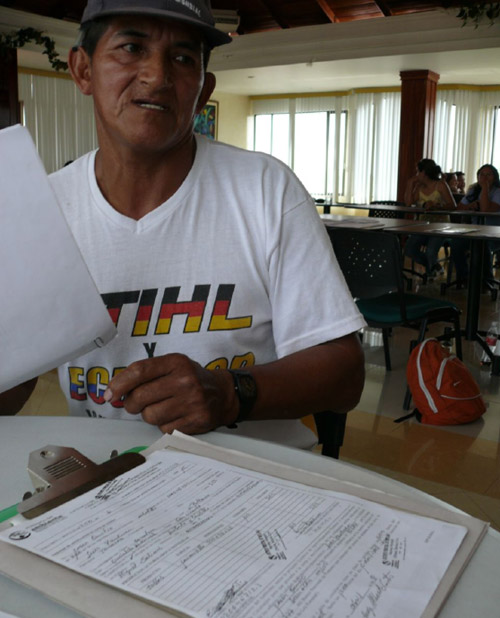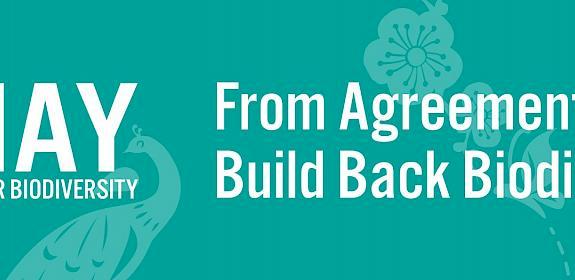Local agreements sought to prevent forest loss in Ecuador
TRAFFIC runs workshops on governance and transparency in the Amazon basin
Quito, Ecuador, 21st November 2008--Local people living in and close to Amazonian forests in Ecuador have been consulted through a new TRAFFIC project to devise the best ways to manage their forests sustainably and prevent forest loss and degradation.

TRAFFIC and local partner Servicio Forestal Amazonico brought together local forestry stakeholders including loggers, timber traders, carpenters, indigenous people, forest authorities, police, municipalities, non-governmental organizations and others.
"People living in or close to forests can have a strong interest to conserve and manage their natural resource sustainably, but all too often their forests are being cleared or over-exploited," said Ulrich Malessa, TRAFFIC South America's Regional Timber Programme Co-ordinator.
"TRAFFIC and our local partner Servicio Forestal Amazonico aimed to bring everyone with an interest in maintaining their forests together, to develop ways to ensure their forests can be managed for the benefit of all."
Ecuador has one of the world's most rapid rates of deforestation, estimated at 1.7 % per year between 2000 and 2005, but up to 2.4% in one Amazonian Province.
The majority of forest loss is for clearance for agriculture, but over-exploitation of forests leads to unsustainable use of resources, and ultimately loss of biodiversity.
One of the major outcomes from the recent meetings was a joint willingness for people to work together to stop illegal practices that degrade forests. Some local communities decided to establish forestry management groups to discuss key issues related to forest governance and illegal logging, whilst in another case, the government forest administration and several associations of indigenous people, including the Shuar, agreed to co-operate on such issues.
"These local alliances can mitigate the failure of many national and international processes, which do not function at the local level," said Malessa.
Over the last 20 years there has been a major shift in thinking on forest management and governance, leading to increased local participation in forest conservation. However, insufficient attention has been given as to how these local level actions can influence national and international agendas.
"Dealing with governance and transparency issues at the local level can have a positive impact on protecting forests nationally and beyond," said Malessa.
"We want to make local voices heard and strengthen local alliances in order to influence national and international debates and actions."
TRAFFIC's project on forest governance in the Amazon Basin is funded by the World Bank and DFID (now FCDO).



